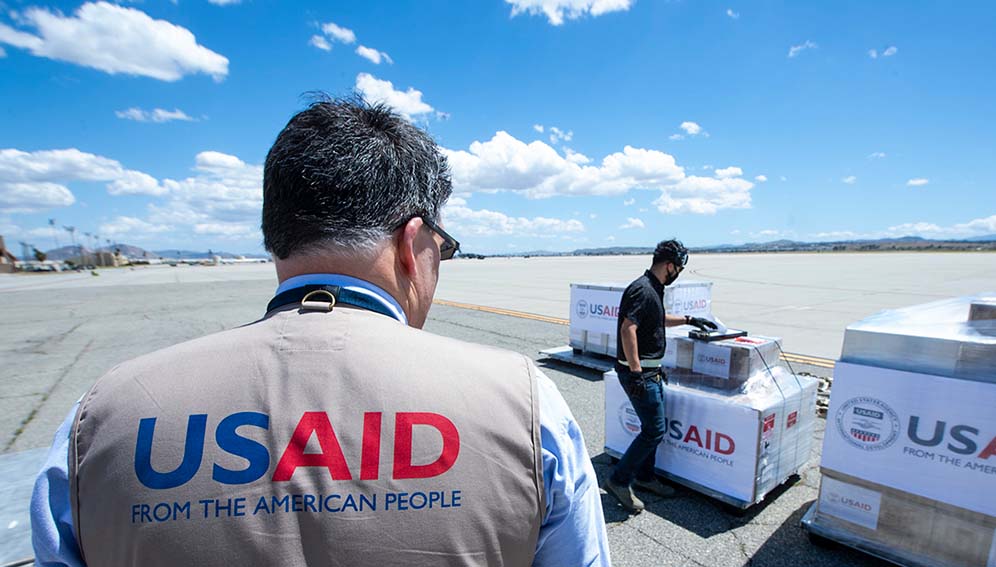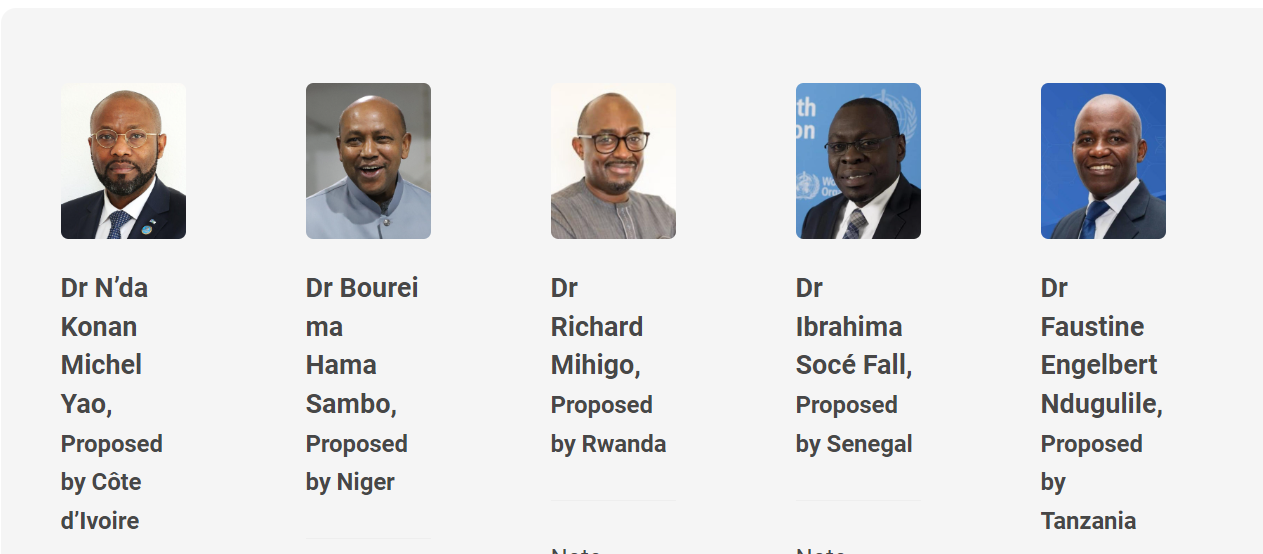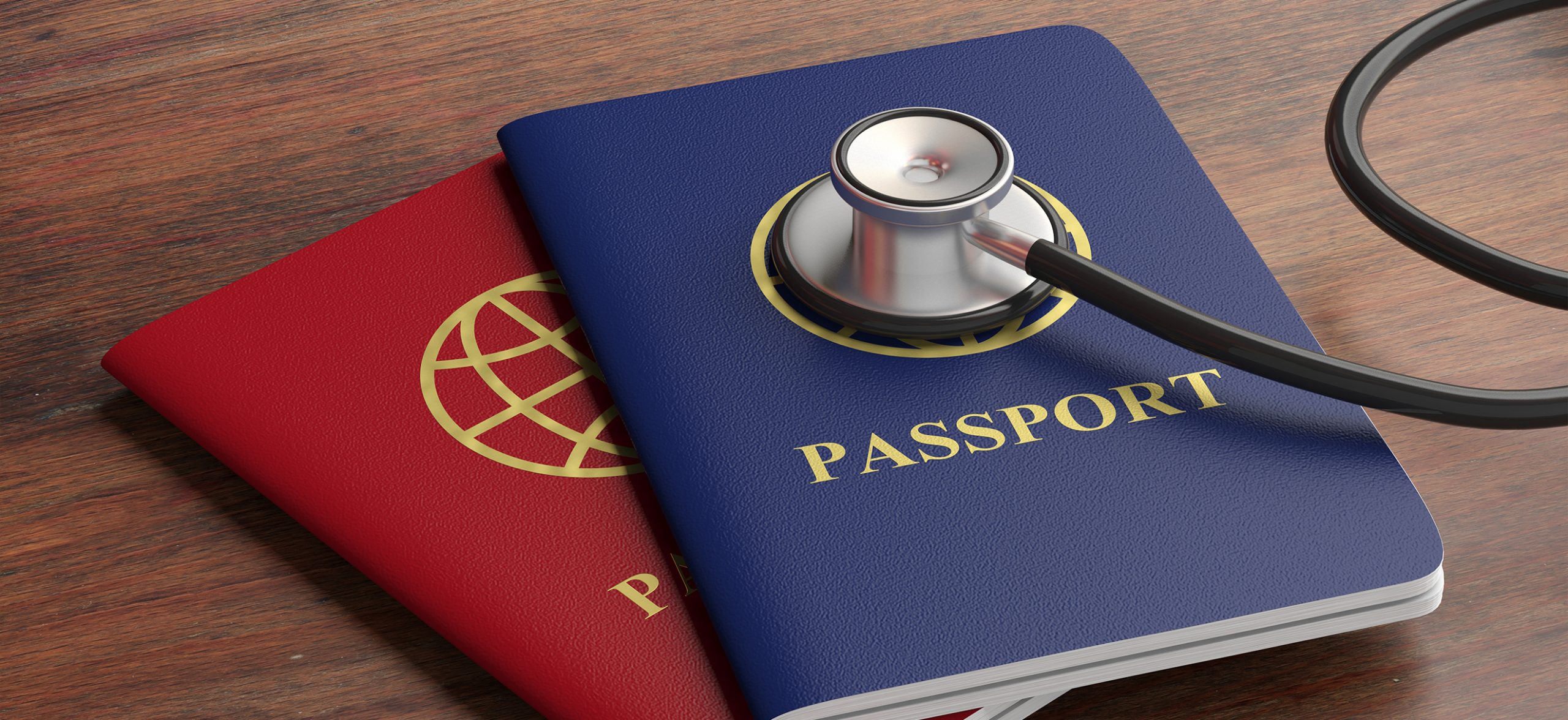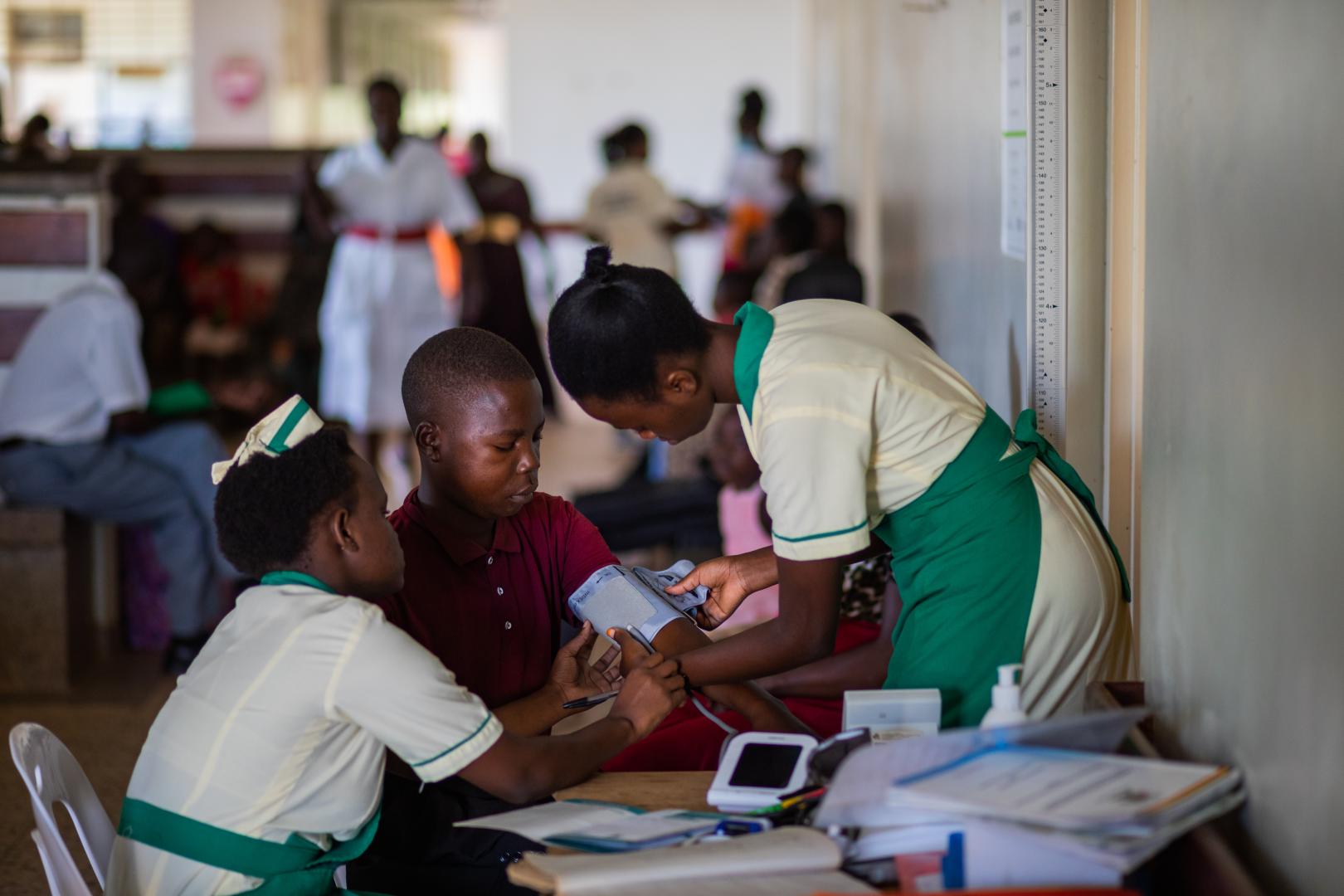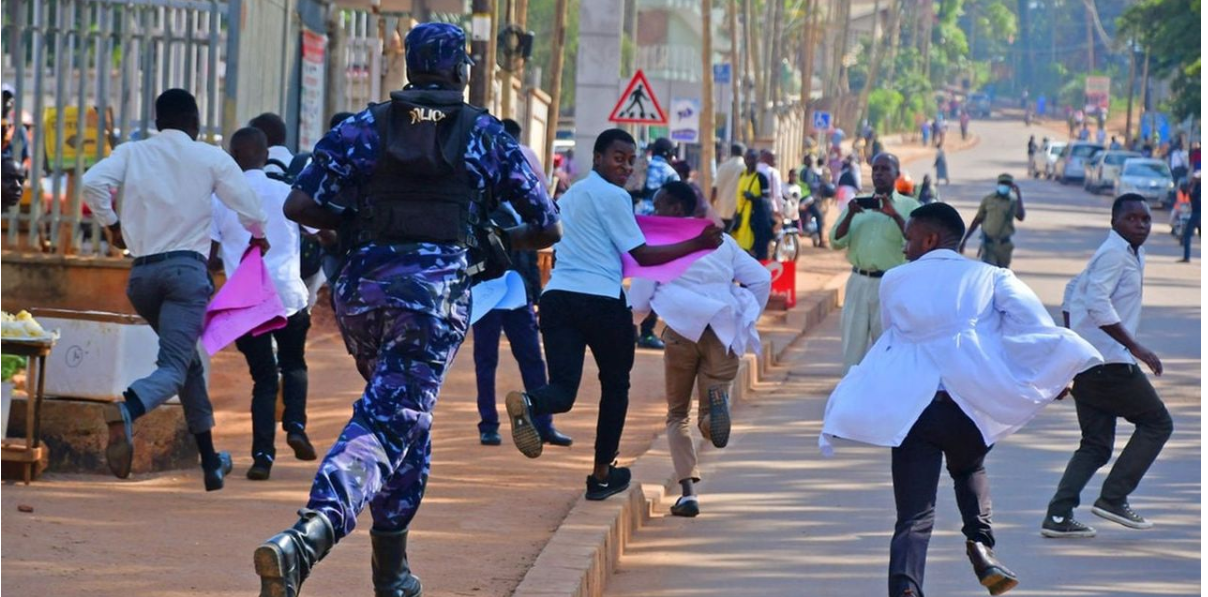Global health and humanitarian programmes have been thrown into disarray after Trump issued a temporary freeze on funding for almost all foreign aid projects and moved to bring USAID under state department control.
President Donald Trump appointed Secretary Marco Rubio as acting administrator of USAID on Monday pending an evaluation of the agency to “ensure its alignment with the America First Agenda”, a press statement said.
The USAID website was brought down on Saturday, with a message stating that the server couldn’t be reached, while the agency’s account on X was also deleted, amid mounting reports of plans to merge the independent agency into the state department.
Rubio paused all foreign assistance last week and halted new aid funding, pending the 90-day review, sending shockwaves through the international development community. It caused most programming activities to be put on hold as “stop work” orders were issued.
There were huge protests outside the USAID building in Washington on Monday as thousands of aid workers in the US and worldwide faced possible job losses.
A waiver was issued on Thursday (28 January) for life-saving humanitarian assistance, including “life-saving medicine, medical services, food, shelter, and subsistence assistance”. The original order also contained a waiver for emergency food assistance.
However, confusion remains among humanitarian organisations as to which programmes will be halted permanently, says Mohamed Abbas, regional director of Hand in Hand for Aid and Development, a charity that provides humanitarian aid in Syria.
He says key sectors such as food, health, and education are expected to be significantly affected in Syria, where USAID is one of the largest donors in these fields.
‘Severe consequences’
“USAID is a leading international donor, not just in Syria but globally, and its funding freeze will have severe consequences for humanitarian operations,” Abbas told SciDev.Net.
He said there were “serious concerns” about whether other donors can fill the funding gap in Syria, given its declining priority on the global agenda despite the ongoing conflict there.
The US offers more foreign aid globally than any other country, spending US$66 billion on official development assistance in 2023. Almost a quarter of this went on global health.
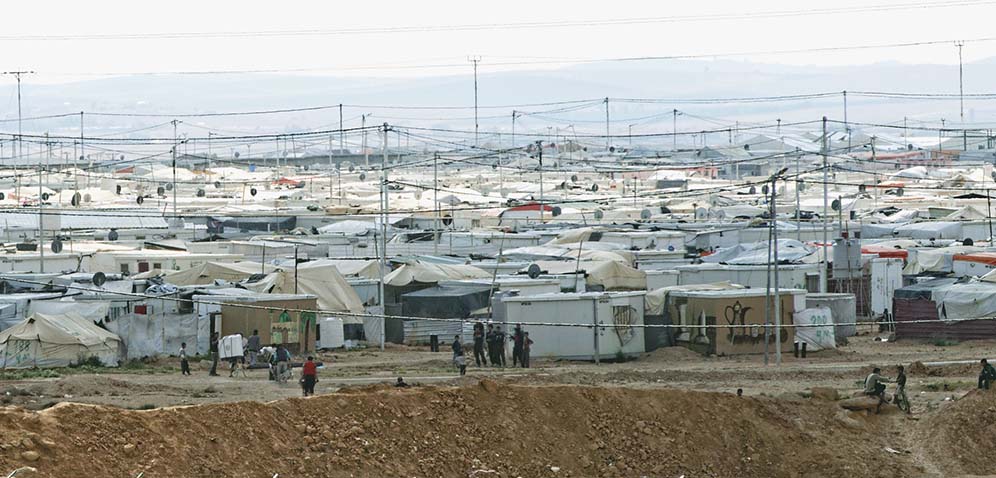
Abdul Rahim Al-Hussein, a camp director in Atmeh, northwestern Syria, warned that the suspension of US-funded aid will have an immediate economic and humanitarian impact, threatening the sustainability of humanitarian and development initiatives in northern Syria.
He said the freeze will indirectly affect displacement camps, which rely on US-supported organisations to provide essential healthcare, food, and education.
“International humanitarian organisations have been key providers of medical aid in the camps,” he told SciDev.Net.
“With their activities suspended, health services will decline, raising the risk of disease outbreaks, especially in overcrowded shelters.”
He said the halt in food, medical, and clothing assistance had already worsened living conditions for displaced families.
America First
The US Department of State—which handles the country’s foreign policy and international relations—made it clear in a statement issued last week (29 January) that the types of programmes set to lose funding included those working in climate justice, clean energy, gender rights, and sexual and reproductive health. “These types of programs do not make America stronger, safer, or more prosperous,” the media note stated.
It said the orders had already prevented over US$1 billion in spending not aligned with the “America First” agenda.
Trump has already announced his intention to pull out of the World Health Organization and Paris Climate Agreement, since starting his second term in office last month.
He has also reinstated the so-called “global gag rule” on abortion aid, which bans foreign aid groups that receive any US funding from offering abortion-related services or advocating for access to abortions.
Linos Muvhu is Secretary of the Society for Pre and Post Natal Services, a voluntary organisation based in Harare, Zimbabwe, which works to support maternal mental health during pregnancy and after birth.
He said his organisation had been in extensive talks with USAID about possible funding for its work, which includes psychological support services and family therapy. It currently relies on finance from conferences, training and crowd-funding.
His organisation has been working with the NGO Jhpiego, which focuses on women’s reproductive health, to raise the profile of what he calls the “silent topic” of perinatal mental health. He hoped funding from USAID would give the issue the international recognition it currently lacks.
“For us it’s a big loss,” he told SciDev.Net. “We have very few donors who are interested to support this area.”
Despite this, Muvhu sees it as a time for “self-introspection”.
“I think it was a wake-up call. We need to find some ways now to finance our own activities and not just wait for international aid or donations to finance some of these key activities.”
Beyond his area of work, Muvhu says many global health workers have been impacted by the job losses, most of them the main breadwinners for their families, and working in areas that are key to survival.
USAID team members and country representatives in Uganda had been told to stop work, while US officials in the country had been directed not to communicate with the media, according to a SciDev.Net reporter.
As well as global health and humanitarian organisations, the orders had an immediate impact on the academic community in countries supported by USAID.
The American University in Cairo announced emergency measures following the suspension of USAID funding, which it said had affected 200 currently enrolled students and 125 prospective students.
The university has set up an emergency student assistance fund to help affected students cover tuition, housing, and educational expenses for the Spring semester, but deferred the admission of new students.
The freeze also impacted more than 100 grant-sponsored staff members who administer scholarship programmes, leading to the suspension of their positions, the university said.
This piece was produced by SciDev.Net’s Global desk.





